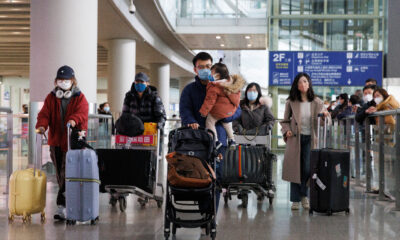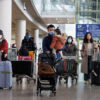Key points:
- Cases in Europe’s largest economy have more than tripled.
- Germany reported 21,951 new infections within the 24 hours through Friday morning, bringing the total to 1,017,830.
- In recent weeks, like other European nations, Germany has implemented tougher steps to avoid the spread of the disease.
- The chancellor reported that the restrictions are likely to remain in effect until the beginning of January.
For the first time late Thursday, Germany’s cumulative cases of coronavirus surpassed 1 million, passing the grim mark about ten months after the country registered the first infections.
Since the start of October, cases in Europe’s largest economy have more than tripled, with the number of people with the disease rising to unprecedented levels in intensive care.
As per Johns Hopkins University results:
According to Johns Hopkins University results, Germany reported 21,951 new infections within the 24 hours through Friday morning, bringing the total to 1,017,830. The number of deaths increased by 430, the largest gain since the record of 510 on April 16.
Germany to impose strict measures:
In recent weeks, like other European nations, Germany has implemented tougher steps to avoid the spread of the disease.
On Wednesday, Chancellor Angela Merkel as well as the leaders of the 16 German states decided to tighten restrictions on private meetings but kept schools and most companies working to help reduce the economic effects.
First time during the pandemic in Germany:
Germany’s curbs have made no progress in halting the spread of the disease, in comparison to nations such as France and the UK.
Infection rates are now almost three times the target rate of the government and deaths for four consecutive days have surpassed 300, the first time since the beginning of the pandemic.
Merkel to lawmakers:
The case numbers have remained stagnant at far too high a pace,” said Merkel on Thursday to lawmakers.” She needs to reduce the occurrence of seven days per 100,000 people to about 50–and remain there—before constraints can be loosened.
Adding to the latest study from the RKI public health institute, it was about 138 on Thursday.
We certainly have a few challenging months ahead of us again,” Merkel said before encouraging people to do whatever they can to escape the worst-case scenario.”
The vaccine could be available before Christmas:
The chancellor reported that the restrictions are likely to remain in effect until the beginning of January, although her chief of staff raised the possibility that they could be extended until March. On a more optimistic note, Merkel said that before Christmas, a vaccine for the virus could be available.






































